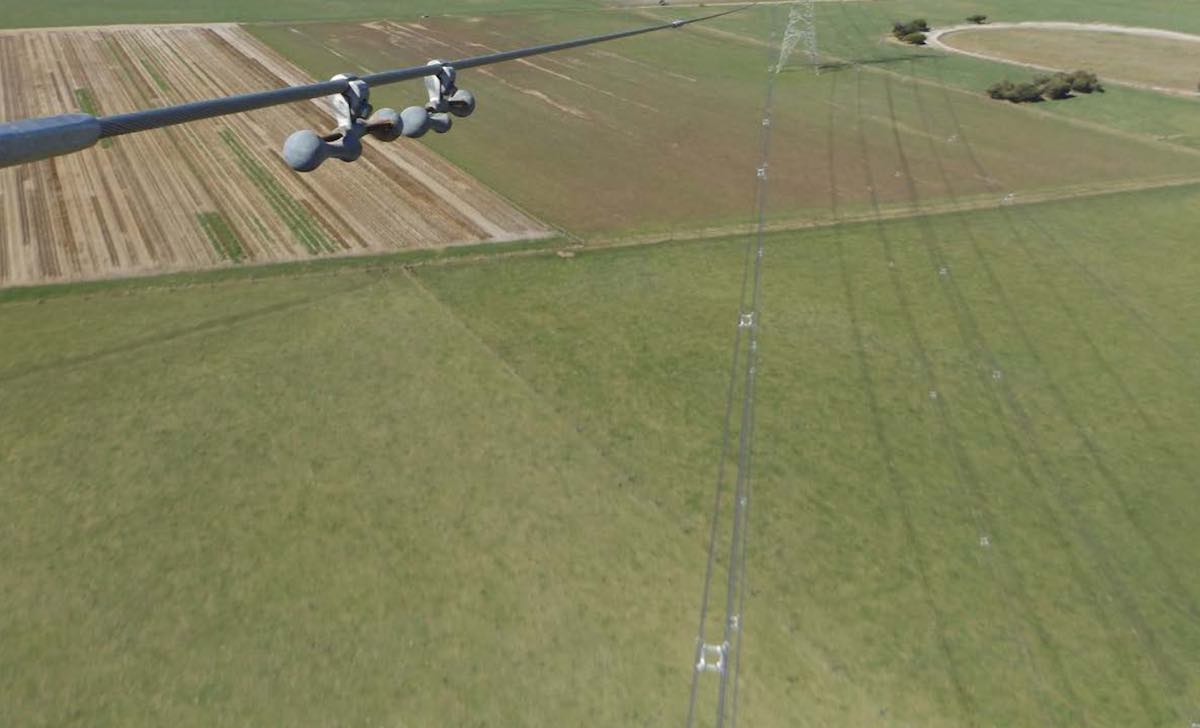Community members of a consultation group set up by AusNet Services for its major new transmission plans in Victoria have accused the network operator of “misrepresentation, deception and lack of empathy” in a significant worsening of relations over key network investments.
In a statement on Monday, four members of the AusNet Community Consultation Group (CCG) – which has a total of 13 community representatives – said they had quit the body, complaining that they had been treated like “fools” during the process.
As RenewEconomy has reported, the group was established by AusNet to enhance communication between the community and the developers of the Western Victoria Transmission Network Project as developers zeroed in on the preferred corridors for the upgrade.
The massive project will involve the establishment of two new networks links; a 220kV overhead line from Bulgana in Western Victoria to a new terminal north of Ballarat, and a second 500kV line from Ballarat to a new Sydenham terminal station on Melbourne’s western edge.
AusNet just under two weeks ago narrowed down a single corridor for its preferred route for the project, ahead of a decision on a final or “exact” route, which it said would be informed by consultation with landholders and take into account existing residents and significant environmental and cultural sites.
But in their statement on Monday, the resigning CCG members described the June 30 announcement by AusNet as “the last straw,” saying the network company had broken its promise to notify them about the preferred route before the media.
The departing members have also alleged that AusNet has “manipulated CCG meeting minutes,” dodged questions with “commercial in confidence” responses, and shown little empathy or respect to community members.
“AusNet clearly sees community consultation as a nuisance and hindrance to their project. Yet they continue to use these consultations as positive PR spin to suggest they care about what we have to say,” said Glen Jones, one of the outgoing CCG members.
“I was worried this might be a box ticking exercise, but it has been worse than that,” added Katherine Myers, another of the four who was quitting the group. “I believe AusNet is manipulating our voices to buy a social licence they lost long ago.”
Plans for major new transmission pathways – proposed to support major new renewable energy projects in various states, including Tasmania and New South Wales – have become the latest targets of disgruntled locals and NIMBYs, concerned about the impact of these massive projects on the surrounding environment and amenity.
Just last week, a new report from the RE-Alliance warned that securing community support for new transmission projects would be essential to the success of the many Renewable Energy Zones set out by state governments and the Australian Energy Market Operator.
“Local rural communities affected by new transmission infrastructure, and other stakeholders, deserve to be able to participate in how these projects are deployed and derive benefits from this new infrastructure and not just bear its costs and localised impacts,” the report said.
Jones and Myers, along with fellow out-going CCG members Bill Saunders and Roger Lowry, said they now intended on “taking matters into their own hands” by holding a number of information nights along the proposed corridor – to which AusNet representatives would also be invited.
They also said they were working on a telephone support service to assist elderly and vulnerable landholders to navigate AusNet’s land access requests, “as an essential service to support the mental health and wellbeing of the community.”
For its part, AusNet denies any formal agreement with the CCG members to inform them of the preferred route of the transmission upgrade before announcing it publicly, and said it would continue to run the community consultation groups in addition to other initiatives throughout the life of the project.
The network operator also noted that while these community consultation groups were considered vitally important to the process, they were one of many forms of community engagement, including one on one discussions with landholders within the corridor.
“The Community Consultation Group is an additional opportunity to share information about the project with the community and encourage constructive two-way discussion and feedback in a forum run by an independent chair,” an AusNet spokesperson told RenewEconomy.
“The Community Consultation Group is made up of a wide representation across the community and has provided valuable input and will continue to play a vital role providing feedback and posing important questions on this Project.
“We welcome their diverse views and important feedback and thank members for their passion, which is reflected in the minutes of the meetings,” the spokesperson added.
“We encourage anyone struggling with challenges of their own, a friend, or a family member’s mental health and wellbeing to contact one of the independent support providers for free and confidential advice.”
On the Victorian government’s part, six local councils are represented on a Department of Energy, Land, Water and Planning technical reference group to ensure that issues around agriculture and farming are examined appropriately.
The Minister for Planning has also referred the WVTNP project to a full Environment Effects Statement process in a further bid to ensure the local community can have its say.
“The Environmental Effects Statement and consultation process will consider impacts on the local environment, community and farming,” a DELWP spokesperson said in an emailed response to RenewEconomy.
“Local residents, farmers and interested members of the public will have an opportunity to have their say on the project when the Environment Effects Statement is publicly exhibited next year.”










